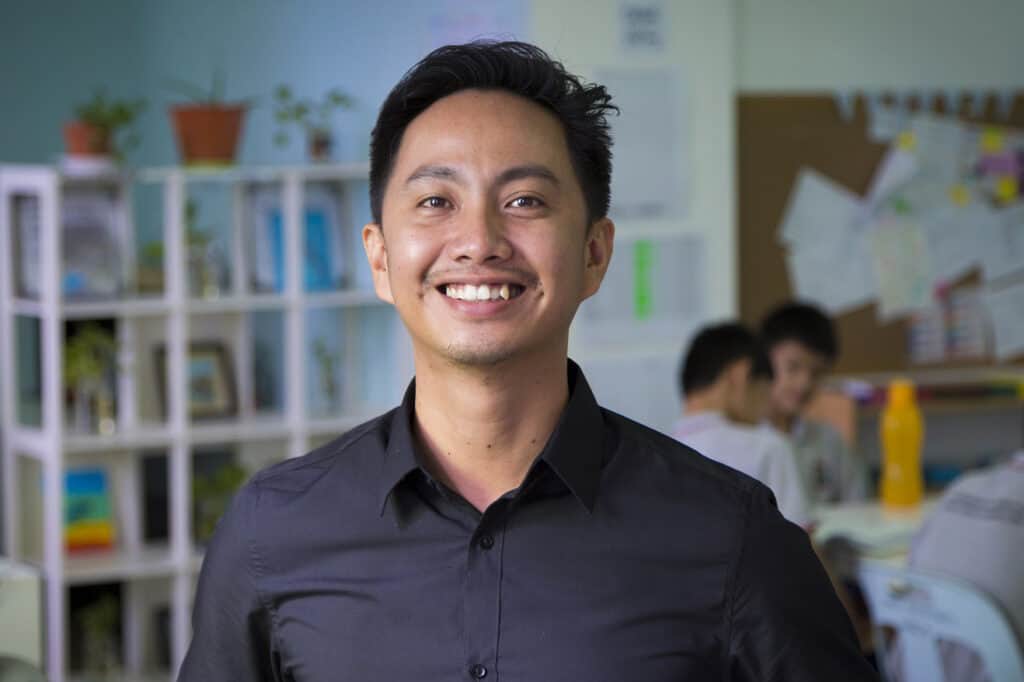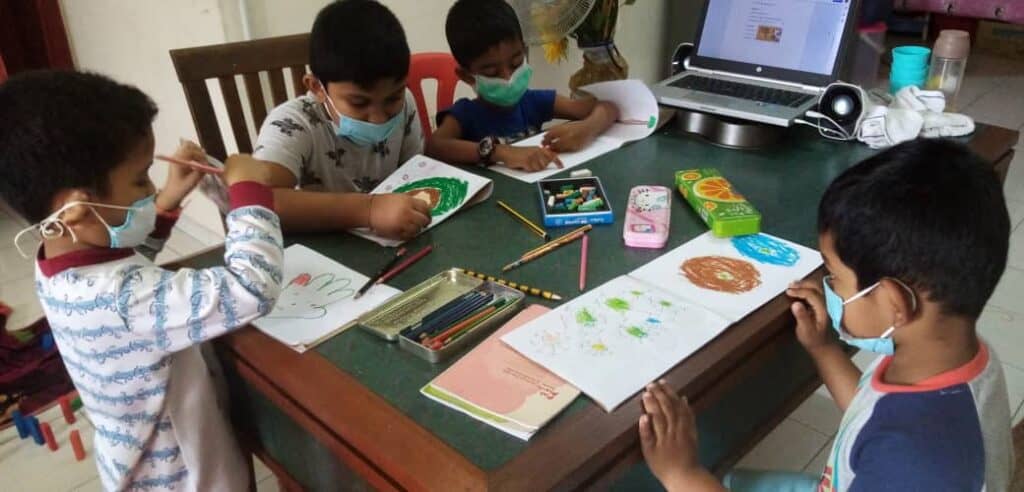
KUALA LUMPUR, 13 January 2021 – One year on from the on-set of the COVID-19 pandemic, educators are still struggling with how best to keep students in schools, engaged and connected.
Local NGO, Dignity for Children Foundation (Dignity), with the support of UNHCR, the UN Refugee Agency’ have implemented a programme called “The Community Classroom” to bring education to the grassroots particularly the refugee communities in Malaysia.
Community Classroom works on the concept of empowering community educators to teach children in the community.
Explained Petrina Shee, Co-founder and CEO of Dignity: “Dignity operates education programme in Sentul for children and youths aged between 2 to 18 years old based on the Montessori philosophy. We have developed in-house over 200 work books focusing on numeracy and literacy.
For the Community Classroom programme, we used these work books to train in-community educators who in turn will teach the children in their respective communities.
The current workbooks are divided into approximately 100 English workbooks and 100 Mathematics workbooks for children between the ages of four to eight. Workbooks for the nine to twelve years old group are being developed.”

Project coordinator Fadlin Linsai of Dignity hold weekly training with the community educators online. He would go through the weekly workbooks to make sure that the educators are sufficiently equipped before they start a new week. All relevant links and the workbooks are uploaded via Google Classroom for ease of access and learning.
“Not all the educators are trained as teachers but they are nonetheless very qualified. They hold professional degrees but could not do what they were trained for because they are refugees. With the Community Classroom, they are able to give back to their communities and, at the same time, acquire a skill that will help them make a fresh start and earn a living either locally or when they get settled in a new country,” said Fadlin.
The Community Classroom programme was implemented in March 2020. Currently the programme has 10 teachers reaching out to over 300 students. The majority of the teachers are women.
As an indication of commitment, each student is required to pay RM50 per month to attend classes. The students are also assessed after the completion of each phase before they can progress further. If need to, some would have to stay at a certain phase slightly longer even as their teacher revises the syllabus with them again.
The minimum number of students per class is 12 and the maximum 25 – depending on the “classroom” size and in accordance to COVID-19 SOPs. Classes with more than 25 students are usually split into two sessions – morning and afternoon.
Most of the classes are held in homes or community halls around the Klang Valley — Ampang, Batu Caves, Cheras and Sentul.
Added Fadlin: “We have trained another 180 teachers who are able to run community education centres in Terengganu, Kedah, Pahang, Penang, Johor and Melaka that is benefiting over 600 students. We are also developing more workbooks.”
UNCHR funds the teachers’ training and wages, the development of the weekly workbooks and equipment.
Apart from numeracy and literacy workbooks, Dignity has also started development of workbooks based on National Geographic magazines. This is to encourage students to be more passionate about the environment and nature as part of a holistic approach to education. These NATGEO workbooks have yet to be published pending copyright approvals.
Fadlin revealed that he hopes to extend the Community Classroom project to his home state of Sabah. “Coming from Sabah I know the challenges faced by educators particularly in the interiors. I shared the programme with my hometown in Pitas, Sabah, but I hope to be able to extend that to other areas so that they too can benefit from the programme.”
Looking back, there are positives to the whole COVID-19 pandemic. As the saying goes, necessity is the mother of invention and truly the Community Classroom is one that will cascade through generations.
